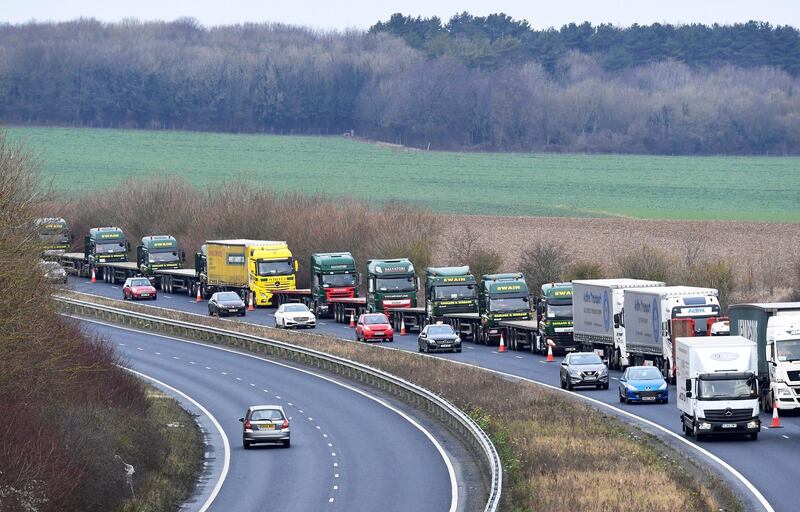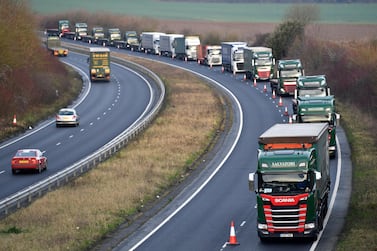NHS Blood and Transplant, the agency which arranges and carries out blood donation in the UK has cancelled blood donation sessions in Dover and Folkestone over fears of traffic preventing transport.
Blood donation sessions will be paused for two weeks before the UK exits the EU and six weeks afterward, the group said on Tuesday.
“This is because in the event of issues at Calais and other freight ports, Operation Stack may be put in place by Highways England and the Kent Police,” said Mike Stredder, Director of Blood Donation for NHS Blood and Transplant.
We have taken the decision to cancel blood donation sessions in Dover and Folkestone for a 2 week period before and a 6 week period after Britain’s exit from the EU. This is because in the event of issues in Calais and other freight ports, this could lead to significant (1/2)
— GiveBlood 🩸🩹 (@GiveBloodNHS) January 29, 2019
“This could lead to significant traffic in Kent and may prevent donation teams from reaching venues in the area or a donation leaving.
The MP for Dover, Charlie Elphicke, criticised the group’s “ridiculous and irresponsible” decision.
“Both the ports of Dover and Calais have said they will keep traffic flowing,” he wrote on Twitter. “Why not see what happens first before creating worry completely unnecessarily?”
The decision will only cancel six planned blood donation sessions.
Mr Stredder stressed the cancellation of the sessions would have “ no effect on blood stocks or on our ability to supply hospitals”.
“Over the same period, we will hold around 2,700 other sessions elsewhere in the country. We will also hold replacement sessions at alternative sessions to compensate.”
A Department of Health and Social Care spokesperson said: “The department does not agree with this course of action. We’ve discussed this issue with NHSBT and confirmed blood donations will continue as normal.
“We’re grateful to all lifesaving blood donors who make an important contribution.”
The port of Dover saw over 2.6 millon lorries pass through in 2017 and preventing huge queues of traffic as more checks are placed on freight at ports has become a hot-button topic in the south of the country. In the first week of January, the government staged a test of contingency plans for longer waiting times using around 90 lorries.
However, the Road Haulage Association called the exercise “too little, too late”.








